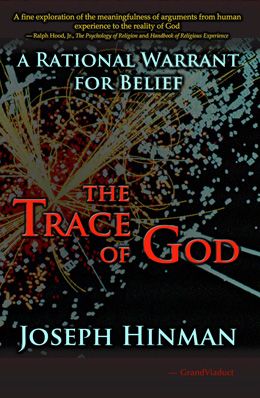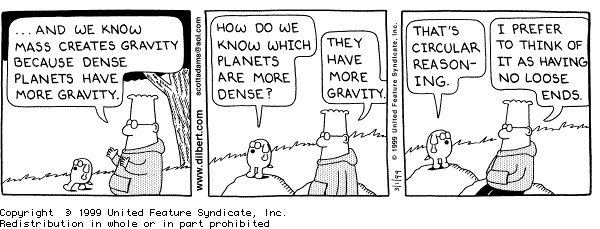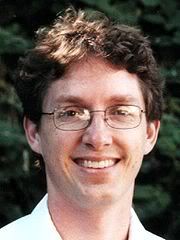Here is an old post from way back in 2010 but it still has come cash value in the market of ideas. I'll post the comments to it next time:
Atheism and Meta ethical Theory

This was a discussion my boards (Doxa Forums) which is still on going. Parts of it are pretty interesting. There are a lot more people involved n it than I reflect here. I will just show exchanges between Fleetmouse who started the thread (and myself) and Quantum Troll (Zebnuts on CARM) and myself. But follow the thread there's a lot more to it than this.
by fleetmouse on Tue Dec 29, 2009 8:40 am
I've seen a few posts recently where Christians point at horrible acts and imply that a nontheistic worldview is inadequate to explain them. Metacrock briefly alluded to this recently in another thread on Doxa regarding a little girl who was sold into prostitution by her mother and ended up dead in a ditch.
So I would like to explore this - is the existence of acts that we would call evil a problem for naturalism, and why?
Before the ball gets rolling, we should discuss whether evil is an essence or simply an adjective. I think this is the crux of the matter.
Meta Responds:
Well first of all, I think it's too narrow and simplistic to say it's either an essence or an adjective. I am not an essentialist. I don't believe women are women because their spirits are the essence of female or that men are male because their spirits are the essence of male. I do have Platonic tendencies (which I've tried to keep under control but the non Plato patch just doesn't work, the gum tastes horrible). But my Platonism is augmented by Augustine, so I'm not actually a full no Platonist.
I do think evil is more than just a word we use to describe stuff we don't like. But I supposes what you really mean is "is it satan or is it us?" right? I don't believe in little guys with pointed tails sitting on your shoulder encouraging you to do stuff.
I do think evil is a value judgment, but it's also more than that. It's a real tendency but not a positive essence, but rather the lack of the good. Being an Augustinian like Augustine I see evil as the absence of Good, and by "good" I mean "love." The illusion of a positive force of evil is created by positive actions that ensue from the lac of love. The analogy would be the way cold is seen as a positive force by people who don't know physics. Of cousre we (us educated types) know that there is no force radiant cold, it's all a matter of lack of heat, but the blowing of cold air gives the illusion of radiant cold. Cold does not radiate like heat. you can sit front of an ice cub and get cool, unless you blow air over it (which is the basic principle of an air conditioner) but then it's the heat being absorbed by the vacuum of cold that makes the air feel cool. It's not a force of cool blowing on you.
So it is with evil. It's the acts of evil that make it appear to be a force. It's actually the lack of love (which is synonymous with the good).
(2) Would a non theistic world be evil?
A world ran by Dawkins would be evil. A world ran by half the people on CARM would be very screwed. But then I wouldn't give much for the chances of a world ran by Mat Slick either!
I have always contended (I don't know what I said on the thread you talk about) that atheists can be good people, and many are, but they are coasting on Christian memories in the culture (meaning values). That does not men they are evil people it just means they have to get their ethical norms from some place and they usually get them from a culture that is working on the fading values of a Christian past. That's our measuring stick in this country and in the West for ethical norms.
The problem with atheists ethics wise is their inability to ground their axioms, not the inability of individual atheists to be moral. Now here's another paradox that is apt to cause misunderstanding. All have sinned and fallen short of ht Glory of God. that means Christians sin, atheist sin, everyone sins. So when atheists sin we say "see atheists can't be moral." But we forget to point out, "O yea, Neither can we!"
Paul tells us (Rm2:6-14) the moral law is written on the heart and that Gentiles not born under the law do actually keep elements of the law because they follow the moral law on their hearts. That has to mean that atheist also can be moral and have an innate sense of what is moral. But we all sin, we all fail at some point so atheists will sin and when they do there will be certain one's there to point it out, and go "ah ha" but those guys are strangely silent when their own sins are apparent.
So the ethics front is a matter of academic involvement. you have to think critically and understand the conversation among professional ethicist to really get what ethics is about. But if you do that I think it can be demonstrated that Theistic ethics is superior in terms of grounding axioms. But that has nothing to do with the rubber and road in terms of individual failings.
I think what I was getting at in that other thread is just that people tend to cover up the concept of sin nature. We don't like to think of ourselves as sinners. So when horrible things happen naturalistic types don't' want to face that something in all of us could lead any one of us to do that same kidn of thing at some point.
that does not mean that those naturalistic types aer not just as good as am I, or just as fallen as am I.
(There were comments by several people. I'm skipping over to another exchange)
met wrote:
Metacrock wrote:but the distinction between Socratic ethics and Christian ethics is that for Socrates "good" means functional or serviceable, not moral. for Christians it means "moral" in other words, mindful not to sin.
Met: (not me, Met is another guy)
does it depend upon the end? ... if moral behavior is a means to something (getting to heaven, avoiding hell, whatever) is it then NOT moral behavior?
is "you ought'a obey God 'cause s/he carries a mighty big stick!" an ETHICAL argument or not?... in Hume's sense of "can't derive ought from an is," i mean
Metacrock:
no it does not depend upon the end. There are two major divisions in ethics. People who believe in truth beieve that rules and duty and obligation determine the good or the right, while godless secularist atheist heathen believe that it's based upon outcome.
I say that tongue in cheek of course it seems to fall that way. Atheists tend to be consequential and believers in some form of deity tend to be deontological in their ethics. Most ethicist today believe
Now Quauntum Troll comes into it, he's quoting me first then responding:
QuantumTroll wrote:
Metacrock wrote:no it does not depend upon the end. There are two major divisions in ethics. People who believe in truth beieve that rules and duty and obligation determine the good or the right, while godless secularist atheist heathen believe that it's based upon outcome.I say that tongue in cheek of course it seems to fall that way. Atheists tend to be consequential and believers in some form of deity tend to be deontological in their ethics. Most ethicist today believe that most from consequential have been beaten.
QT: Deontological ethics don't make sense to me, unless your moral rule is that you shouldn't hurt people. But if that's your deontological rule, then you end up with a consequentialist ethics in practice anyway. A deontological ethics that isn't based on that rule is in my opinion not a good idea.
Metacrock:
that's contradiction to your own biological based outlook. Because your view says anything found "naturally" in nature must be an ought, right? am I misunderstanding you there? But then you have arbitrary outcome oriented understanding that is not derived from nature becuase nowhere in nature do find ideas like "hurting others is wrong."
you are imposing a teleological ethic upon deontology, and you are imposing the violation of the fork on consqeuntualism.
QT:
Suppose you follow the rule "always tell the truth". Then you might find yourself in a situation where someone will be hurt by the truth, and you knowingly tell the truth anyway and knowingly hurt this person. And you walk away feeling like you did the moral thing. Madness!
Metacrock:
you can always keep silent. you are trying to interpret duty and obligation in a way produces the most legalistic and ineffective outcome. That's not really the result of keeping duty, it's the result of interpreting it that way on purpose. For example, the Nazis come in and say "do you have any Jews hidden about?" If you keep silent they will know and look for them so you say "no." You haven't really violated your duty because you can lexically order duty. The higher duty to protect those in danger overrides the personal duty of telling the truth.
QT:
My point here is that a deontological ethicist might say "tell the truth" only if she also says "don't hurt anyone". But as I said above, the latter rule turns the deontologist into a consequentialist in practice.
Metacrock:
you can say your duty is not hurt anyone but you are going to measure the sucess by the outcome and say that's what makes for morality, the deontologist says morality is decided by how duty and obligation, an act is moral because it is your duty or an obligation, not determined how well you keep it. It's determined by what your duty is in the first place. That doesn't mean the outcome of violating doesn't count becuase it 's an outcome it just means it's not determined as moral because of the outcome.
In other words seeking pleasure and avoiding pain is not a moral precept.
QT:
Metacrock:Then there's the question of where the deontological rules come from. You might say they come from God. I don't think God cares about people following rules (such a petty God that would be!), but rather that people care about each other and act like it. While I don't see any value in following rules for their own sake, a rule can be a good guideline or hint for ethical behavior in many situations (like for example the truth-telling rule).
Your just shifting about the rules of grammar to make deontology look stupid. I don't think you do that on purpose, I think probably it's taught that way in ethics classes below graduate school because people teaching those classes have been shaped by the ideology of mid 20th century liberalism that said consequentilist ethicsl is urbane and deontology is legalisitic and hyde bound. So they cast it in terms of rule keeping rather than duty or obligation and they stick in a bunch of psychology about rule keeping being less highly devleoped than conceptual understanding.
dentology is not about rule keeping. There's a form of it called "rule deontology" but it's the lesser version for suckers. The more important version is based upon duty and obligation. No dentological ethicist say you have to rigidly keep rules when they violtate their own spirit of the rules.
QuantumTroll wrote:
Metacrock wrote:see the problem with consequential ethics is it's illustrated prefectly by QT. His standard for "ethics" is "success." Success means purely functional not moral. So his "ethics" have no moral basis.
No no no, you have misunderstood me grievously. Or rather, I have put the focus of my post on the wrong point. My standard for ethics is the welfare or happiness of a community.
Metacrock:
But you seem to define that in terms of success. Even so it's still teleological.
QT:Because your view says anything found "naturally" in nature must be an ought, right? am I misunderstanding you there?
Yes, that is a misunderstanding. The point I was making about finding cooperation and some kind of "love" and care in nature is only that deriving an "ought" from an "is" is such an easy and obvious task that animals do it. There are lots of examples of altruism and selflessness to be found in nature (and the opposite). If the animals can find a reason to love selflessly, then so can we. However, just because animals do it doesn't mean that we should. So why should we? Because nobody likes suffering and we can all help each other.
Metacrock:
you say that because you are not recalling finding an ought at all. Our ought is not based upon a moral ought but upon a practical success ought. your value system of what's best for the community is entirely based upon physical success, gene frequency completely devoid of ethical and moral content. You cannot manufacture an ought based upon an is. you have to stick in a value, you can't get the value just by looking at nature.
eating your [young] is found in nature so why not eat your young? you will stick in a values nd say "we don't do that." but you have a basis for it other than your own psychological predilection not to.
you can't reduce all of life to chemicals and expect to find values in them.
QTMeta:But then you have arbitrary outcome oriented understanding that is not derived from nature becuase nowhere in nature does one find ideas like "hurting others is wrong."
I think you do find that idea in nature if you're open to seeing it
Metacrock
begging the question, whatever you can think of must be seen in nature, therefore, if you think of it it's in nature. That doesn't follow; the circle goes "my conclusion is X therefore, X is right, therefore, X must be my premise.
QTThe higher duty to protect those in danger overrides the personal duty of telling the truth.
Exactly what I was trying to say. You don't tell the truth to the Nazi because of the consequences to the Jews you're protecting.
Meta:
It's not the consequence that makes it wrong to divulge. Both deontologists and teleologists agree that doing wrong has bad consequences, but the one thinks that's what makes it wrong, the other things the consequences are bad because its wrong.
why is it wrong for millions of Jews to be murdered in camps? We find death all around us in nature. Species compete and wipe each other out all the time. If you think being in nature makes it an ought you should support the holocaust. Its' only because you have a higher value that originally came from Christian theology that says people are ends in themselves not means to an end. In nature all animals are a means to an end. An individual is not important, what matters is gene frequency, once the individual is out of the running he's no good any more. that's the "ought" you draw from nature. If an individual is not contributing to gene frequency he should die. It's only when we bring in a higher value from somewhere esle that says individual matter for their own sake, which is not in nature that we can see the holocaust is wrong.
where do you get the concept of "wrong" at all? apart from a moral context it's only in the context of practicality.
QT:The more important version is based upon duty and obligation. No dentological ethicist say you have to rigidly keep rules when they violtate their own spirit of the rules.
Duty and obligation seem to me just more nuanced versions of the same basic idea as rules.
Meta:
Nuanced is better, it's more intelligent and less rigid. Nothing wrong with rules, the problem is (1) in what are they founded? (2) how rigid, often the letter must be violated to save the spirit of the rule.
Qt:
Why are these deontological duties and obligations moral? I think that deontological ethics works because keeping these duties and obligations enforces behavior that leads to good consequences.
Meta:
you are trying to flatten them out and make them practical. in so doing you remove the moral dimension and thus clear the way for the holocaust. Your use of the term "good" is suppossed to sound like a moral motion but it's not. If "good" is entirely in practical terms then killing the Jews may be good for society in a Draconian sense.
QT
If you separate the consequences from the action, then it becomes difficult to know which duty and obligation is higher and more important. In other words, I think there is a significant practical reason to be a consequentialist.
Meta
action by itself has no basis in morality, the only way to tell if an action is moral or not is to know the value and what grounds that value that the action supports or violates. You cant' do that by deriving morality from outcomes only.
saying "practical reason to a consequential" is like saying "it could be good for you to be murderer." Yes it could if you define "good for you" apart from morality. So I mean by that if you define "practical" apart from morality you are only arguing in tuatolgies and removing the moral dimension.
The only way to assign moral significance to an action is to know up from what the values are that one sets up as the axiological basis for action. once you know then and only then can you know what moral significance an outcome has.








27 comments: next time